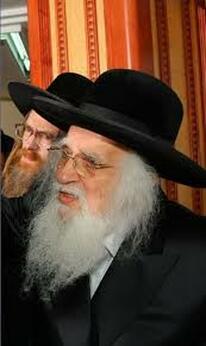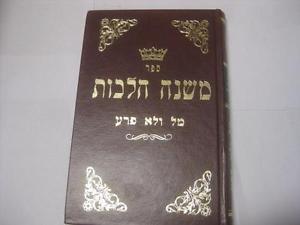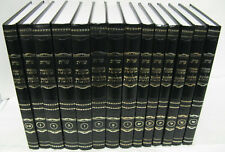Rav Menashe Klein - Gelatine
|
R' Menashe Klien, published in Nezer HaTorah Kislev 5772 The Mishna [Chullin 122] records that that skins of various beasts are deemed to be flesh i.e. they are food, and carry ritual impurity but they lose that status with tanning. The expression used, “Battel MiToras Bassar – it is no longer classified as meat” means that it is no longer meat in any respect and it may now be eaten as a Kosher product. [See RaMBaM Avos HaTumos 1:13: meat that is deteriorated to the point that a dog would not eat it, is no longer meat, in fact it is no longer food] Radvaz [979 or 545] rules similarly, that the flesh of a mummy is not food and there is not even a Rabbinic restriction. Regarding gelatine manufactured from hides the principle is the same; it is Kosher without qualification. [Heter Gamur] The prohibition of eating non-Kosher food is limited to normal eating. The Torah does not prohibit ingesting non-Kosher foods. Non Kosher foods may be injected into ones body and may be fed directly into ones stomach; eating means the act of chewing, tasting and swallowing - all in the normal fashion. Therefore, we may consume non-Kosher foods when they are either combined with foul tasting additives [even though the foul tasting additive can be removed from the food, since normal people do not choose to eat such foods] or eaten in an abnormal fashion i.e. swallowed. The Chavas DaAs [YD 103] explains that these two situations are supported by different Pesukim from the Torah. In one case the food is only temporarily disqualified, its prohibited status will be restored once it becomes an edible product. However, where food deteriorates, it permanently loses its identity as a food and remains permitted even when restored to an edible food. Although the Beis SheOrim [OCh 206] appears to disagree, suggesting that any spoiled food can be restored and will be re-identified with its original non-Kosher status, the source of this Halacha [a discussion in the Gemara Bechoros 13] proves otherwise because it is limited to food that has been rendered unsuitable for human consumption but has not completely lost its identity - it is still suitable for a dog. Once food has become utterly spoiled however, it becomes a new entity and this is an irreversible step. This is supported by the words of the ReAh [Bedek haBayis 4:1 and again in 4:4, p35b] and the Rashba [MishMeres HaBayis 4:1] who both agree that once fully spoiled, a food cannot be restored to its previous non-Kosher identity. In fact the Rashba maintains that just being disqualified from human consumption renders it permanently disqualified from being a food. The Avnei Nezer [YD 2:242] proves from the RaMBaM that food that is dehydrated to the point that it requires more than 24 hours of soaking in warm water to be rejuvenated, is permanently disqualified from being considered food. The NoDa BiYehudah 1:26 YD, explains that this is true only where the re-hydrated product is eaten on its own as a regular food. Re-hydration does not restore its prohibited status if it is used as an additive to another food. The Rosh [Berachos 43] quoting Rabbenu Yona [who dismisses the concerns of Raz HaLevi], rules that musk is Kosher although it was believed to originate from a blood fluid, since it is now an altered product. The Rosh also rules this in his Teshuvos [24:66] Although the Magen Avraham argues that the Gemara [Bechoros 6] proposes that milk of a Kosher beast ought to be non-Kosher since it is derived from a blood fluid. In that case he asks, why is it different to musk? Why does the Gemara find it necessary to invoke a special permit for milk? This is not a question. The Gemara proposes that milk ought to be prohibited because, Dam NaAcher VeNaAse ChaLav, which does not mean completely altered, rather, clouded or murky. MaYim AchuRim, is murky water, in which the sediment has been kicked up. Milk is not an altered product but is still essentially blood that has become murky. Obviously it would be prohibited if not for a disclosure from the Torah that it is permitted. See also RaMBaN Shemos 30:23, that we can use Mor Derror [possibly musk] for service in the Mikdash even though it originates in a non-Kosher beast, since it is now altered from its origin. HaRav Klein also explains that since extracting collagen is a destructive process, there is no prohibition of Ein MeVatlin Issur LechatChila. HaRav Klein notes that he has studied the response of HaRav Feinstein and sees that he agrees to rule leniently other than regarding use of soft edible skins. Although HaRav Klein does not accept HaRav Feinsein’s concerns about soft skins, he nevertheless is reluctant to openly disagree with him and therefore regarding gelatine from soft skins reserves his ruling. It should be noted in this regard, that skins are far more valuable as leather than gelatine. Thus, gelatine is extracted from the off-cuts, the non-usable parts of the hide which are not in any way suitable as a food. Accordingly, even Reb Moshe would agree that gelatine extracted from non-Kosher skins is Kosher. |





